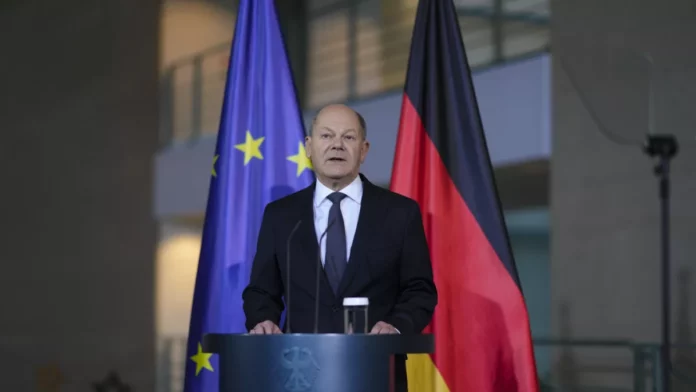The German government is negotiating a peace agreement with Russia behind the backs of the Europeans and at the same time financing the war
Federal Foreign Minister Annalena Baerbock with Federal Chancellor Olaf Scholz. Social media
The German government under Social Democrat Olaf Scholz is negotiating an agreement with Vladimir Putin to end the war between Ukraine and Russia. According to a report by Martin Nissen (Foreign Office diplomat at the German Embassy in Moscow and agricultural adviser), to which LA GACETA had access, European poverty, the climate crisis, the drama of farmers or food shortages would be the points on which they would rely to end the conflict.
This plan, which is already known to up to 70 countries whose diplomats had access to official papers, has also included the Brazilian party of Lula Da Silva (Workers’ Party) in the negotiations.
Martin Nissen participated in a digital chat with the German Chancellor from Mexico City in 2021 as part of a program they called Deutsches im Ausland. In addition, it should be noted that he is very close to Scholz, so it is not surprising that he was chosen to lead these talks.
However, he is not responsible for conducting these negotiations, and he only acts as a visible actor between nations to avoid involving the real “ringleader” of the government. Annalena Baerbock, the German Foreign Minister and member of the Green parliamentary group, was chosen for this mission from the beginning, a fact that collides with an antagonistic public reality: the traffic light coalition has been one of Ukraine’s main supporters since the beginning of the conflict, and just a week ago delivered a new package of $685 million to Kyiv.
The economic recession of the main engine of the European Union, together with other problems faced by Germans such as the energy crisis or the migration chaos, are some of the arguments that could have led the executive to draft this plan two months before the federal elections, in which the Social Democrats are ahead in the polls in third place. However, this is a new case that highlights the lack of transparency in Brussels, which has been prioritizing for months at the public and economic level to foment a war that already seems endless.
LA GACETA has tried to contact Nissen several times and through various channels since it learned of the existence of this agreement, but has not given an answer.
Key points of the report
One of the points on which the report emphasizes the most is the need to ensure global food security. The proposal, which was discussed in November on the sidelines of the creation of the Global Alliance against Hunger and Poverty (GAHP) during the G20 summit in Rio de Janeiro in November, aims to mobilise key players such as Brazil, India, the United Arab Emirates and the African Union.
The plan provides for negotiations focused on demilitarization, the restoration of agricultural infrastructure and economic reconstruction in the affected regions, with the aim of ensuring food production and distribution. Russia has expressed its readiness to negotiate, while Ukraine’s statements also point to a possible opening.
With deadlines until January 2025, Germany aims to avoid further loss of life and ensure a sustainable future for agriculture, stressing that the continuation of the conflict is irresponsible for global food development.

